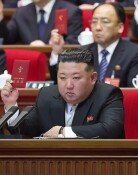Ombudsman of Korea under the PM to Change into Ombudsman under the President
Ombudsman of Korea under the PM to Change into Ombudsman under the President
Posted February. 01, 2005 21:41,
The Ombudsman of Korea, set up in 1994 under the prime minister, will be reshuffled into the National Administration Ombudsman under the president.
The government on February 1 decided the bill on establishment and operation of the ombudsman in a Cabinet meeting presided over by Prime Minister Lee Hae-chan in the Central Government Complex in Sejong-no, Seoul. If it is passed in the National Assembly in February, it will be effective starting July.
An official from the Ombudsman of Korea explained, Up until now, administrative organizations have regarded the Ombudsman of Korea as a mere government agency that deals with public grievances, adding, We have decided to reshape our agency in order to help effectively the people whose rights are infringed upon.
Although recommendations provided by the Ombudsman for correction or improvement of systems are not compulsory in their nature, the organization will be able to pressure administrative bodies to voluntarily implement them by reporting its operational conditions to the president and the National Assembly annually and presenting special reports if needed.
The new Ombudsman will be allowed to commission the Board of Audit and Inspection and other auditors for superintendence particularly when it spots cases of intentionally poor conduction of works. Furthermore, local governments will be permitted to set up their own civil ombudsmen.
In the meantime, the government, on that day, published its plan for continuous expansion of the fever in Asia for Korean cultural products in the Cabinet meeting. Under the plan, it will establish a graduate school of culture technology aimed at nurturing competent human resources who will lead in helping maintain the craze for the Korean culture. The government allowed installation of special purpose companies for a stronger base of the Korean cultural products contents industry.
It also passed the government structure bill that calls for the following points: introduction of multiple deputy minister system into four ministries including Ministries of Finance and Economy, Foreign Affairs and Trade, Government Administration and Home Affairs and Commerce, Industry and Energy so that each can have two deputy ministers; change of names of the Ministry of Gender Equality to Gender Equality and Family and the Ministry of Construction and Transportation to National Land and Transportation, respectively; and transfer of tasks for the youth conducted from the hands of the Ministry of Culture and Tourism to those of the Youth Committee under the prime minister that is to be created.
Yong-Gwan Jung yongari@donga.com







